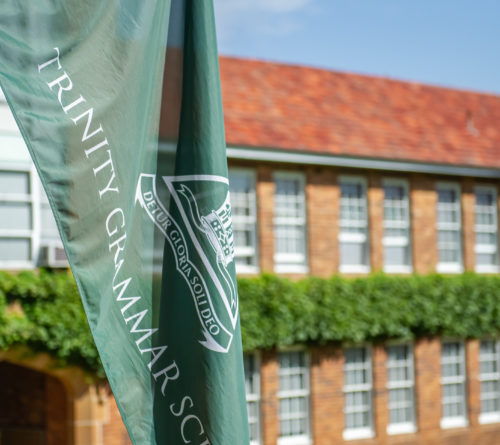Academic Focus
Learning with Understanding
Trinity’s approach to teaching and learning is student-centred. For us, this means we prioritise individual growth over comparison to others and the fostering of each learner’s capacity to be independent – to be increasingly in charge of his own learning. We are interested in the attitudes, values and behaviours associated with learning, as much as the mastery of knowledge set out in formal curriculum. Earlier in the term, I identified four areas of growth the School expects to see in each learner:
- His capacity for deliberate engagement
- His skills to manage deep learning
- His disposition to embrace challenge
- His expanding repertoire of what he knows, understands and can do
Last week I wrote about the School’s approach to deliberate engagement, and this week I’d like to consider what we mean by growing a student’s skills to manage deep learning.
In its 2019 Curriculum Review, the New South Wales Education Standards Authority called this ‘learning with understanding’ and articulated it as the lead principle for curriculum reform:
Essential to school learning is the development of increasingly deep understandings of core concepts and principles in an area of learning, around which factual and procedural knowledge is organised.
This principle prioritises conceptual depth. As students make progress in a subject, they not only acquire more sophisticated knowledge and higher levels of skill, but they should also develop deeper understandings of the concepts and principles at the heart of the subject – the ways of thinking that, for example, an historian, a scientist, an environmentalist, a writer undertake. These concepts and principles enable students to structure and make sense of the material they are learning and are a crucial aspect of increasing competence.
Learning for deeper understanding is antithetical to teaching for superficial coverage, memorisation of facts and rote processes. While no curriculum intentionally seeks superficiality, this can be the outcome when more and more content crowds out opportunities for application and critical reflection. The Curriculum Review’s second principle is that that students must develop, alongside factual content, ‘skills in applying knowledge’ – or skills to manage deep, conceptually focussed learning:
By incorporating both theory and application, school subjects develop students’ appreciation of practical relevance, as well as their skills in applying knowledge to real-world contexts and problems.
How might we recognise these skills for managing deep and conceptual learning in our students? We might see these kinds of attitudes and behaviours as they engage with content:
- coping with cognitive uncertainty: working to categorise, order, connect and synthesise diverse elements of knowledge on the way to understanding an initially puzzling concept
- tolerating complexity: setting aside simplistic reductions of ideas and accepting contextual differences
- applying learned principles to new and surprising conditions, not just the familiar
- problem-solving with a range of skills and strategies, drawing knowledge from multiple topics
- asking questions and being curious about exceptions to the concepts and principles being studied
Dealing with initial uncertainty, complexity, the unfamiliar and multiple perspectives is challenging. But, we want our students to expect challenge – and step into it, knowing they have the support to work through learning challenges. We want them to experience the satisfaction of achieving mastery after a stretch, discovering new perspectives, balancing complexities. When this is their experience in the classroom, with their peers to learn alongside and their teachers to guide, they can become confident and successful in whatever learning contexts they might choose in the future – including final credentials!
I’d like to finish with a reflection on the Year 9 25-hour inquiry courses launched this term as part of our Stage 5 curriculum innovation accommodating the term-long Field Studies experience. As I speak with students and teachers about these courses, and pop into these classrooms while learning is in progress, I hear highly engaged boys talking with each other about different possibilities for investigation, I see the evidence of first attempts to organise thinking and subsequent iterations of increasingly sophisticated representations of complex concepts on walls and whiteboards and digital records, I am astounded by the passion and prior knowledge students bring to these learning experiences, and I am impressed by the ambition of the projects boys are designing. In short, I see the skills for deep learning in action.
Of course, all of this is probably more challenging than memorising lots of content and reproducing familiar processes – but then, what is most rewarding is always the product of what is most demanding – and learning should always be deeply rewarding.
Deborah Williams | Academic Dean
















